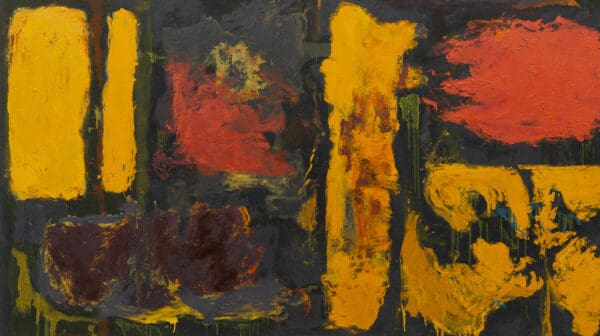
Making Space at the Table
NAP Contemporary’s group show, The Elephant Table, platforms six artists and voices—creating chaos, connection and conversation.
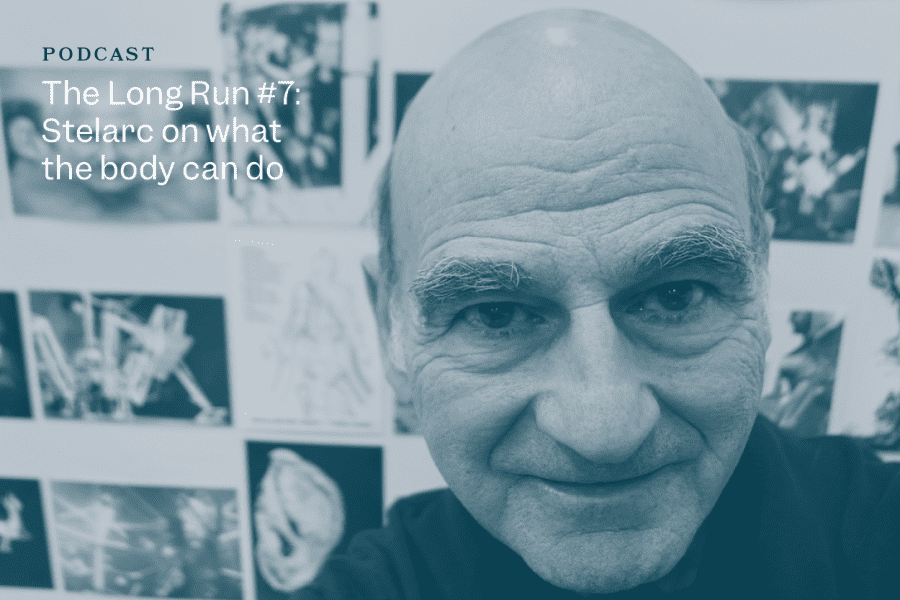
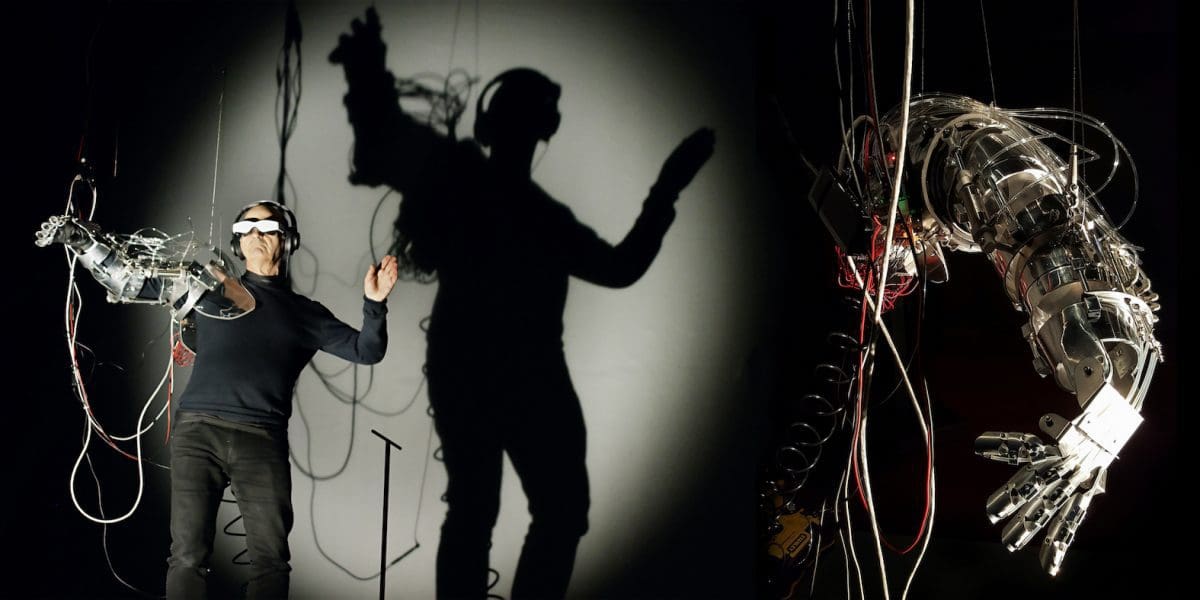
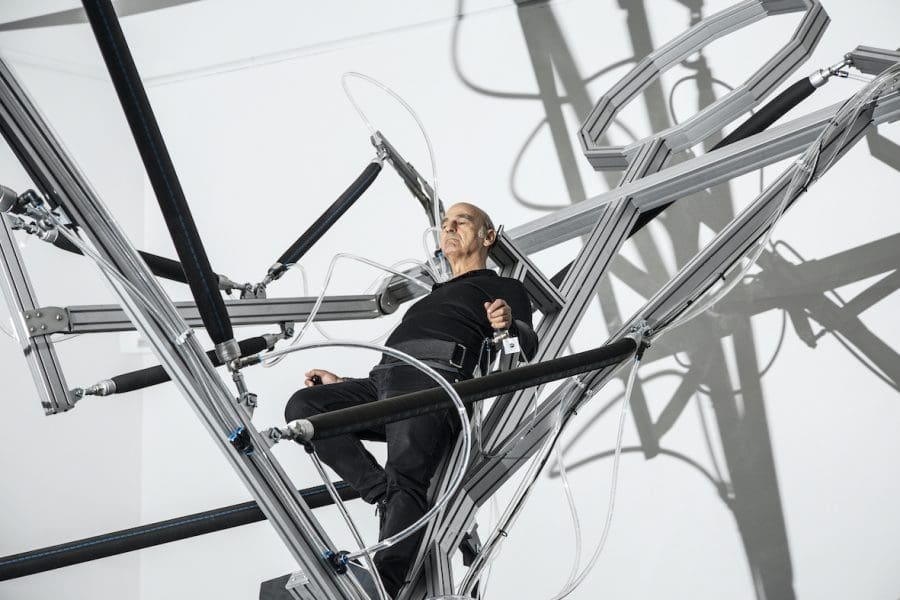
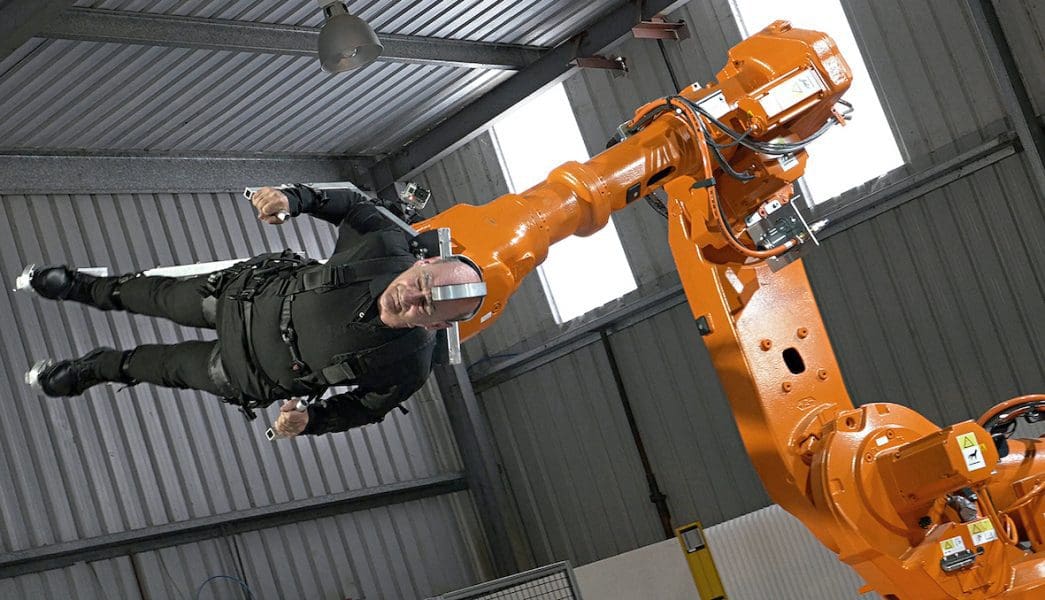
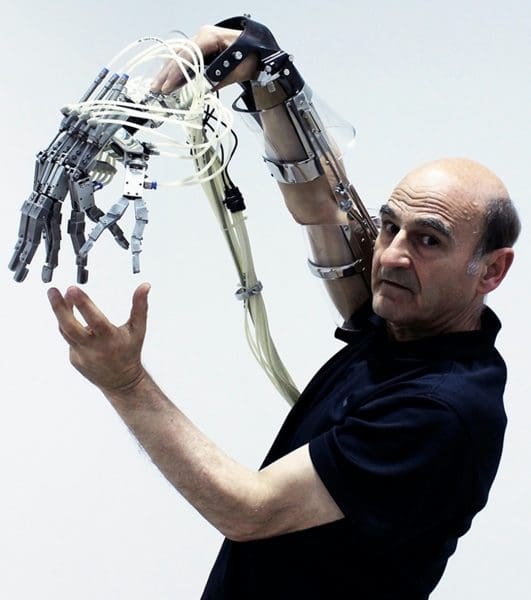
Although Stelarc is just shy of the 60 year mark—The Long Run podcast is centred on speaking with artists who have 60 year careers—his performances and installations, and the centrality of the body in his art, get to very meaningful ideas about life and technology.
Whether placing an artwork in his stomach, actualising a body with a third hand, giving his agency over to performance viewers, and rather famously growing an extra ear on his arm, Stelarc has gone to true extremes. The way he challenges himself through his art sets down a challenge to his viewers.
Through this practice, Stelarc has problematised the limits and capabilities of the human body. As he says, “Walking with six legs on a robot. Being algorithmically actuated by a full body exoskeleton. So, all of these experiences have been about exploring these alternate anatomies.”
Born in Cyprus, Stelarc’s family moved to Australia when he was four years old. He studied art in Melbourne, and soon after lived in Japan for almost two decades in the 70s and 80s. He first became well known for his early suspension performances where he’d hang naked, suspended by hooks into his skin, whether in the gallery or in a public setting.
In investigating the human body, his later performances are often entwined with technology—and have seen him perform nationally and internationally amongst myriad galleries and institutions.
Stelarc is incredibly interesting to speak with, and we talk about his suspension performances and some more recent technology-based performances. We also discuss what Stelarc means when he says the human body is obsolete, as well as questions of agency and death, and the ways in which Stelarc has used his body in his art for almost 60 years.
His work is currently showing at the Science Gallery’s Swarm exhibition.
Swarm
Science Gallery, Melbourne
13 August—3 December
This series is kindly sponsored by Leonard Joel Auctioneers and Valuers, based in Melbourne and Sydney.
Produced and presented by Tiarney Miekus, engineering by Patrick Telfer, and music by Mino Peric.